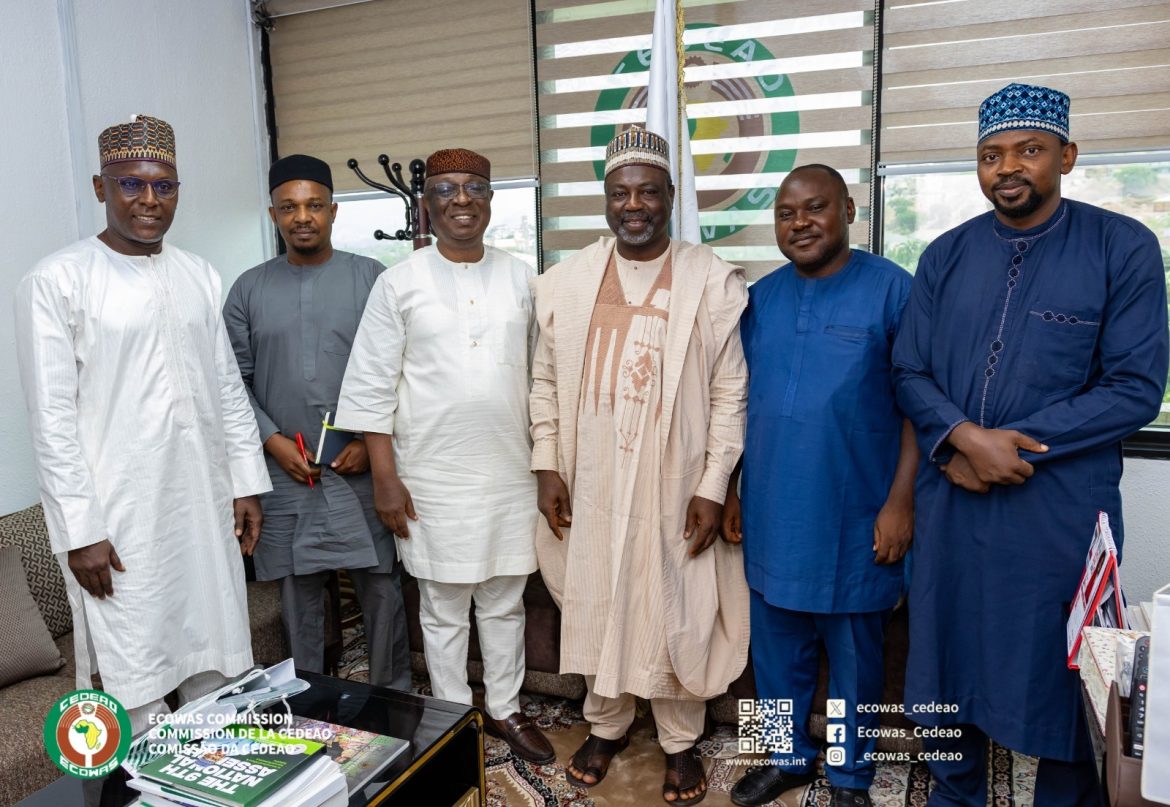563
By Tracy Moses
The Nigerian Economic Society (NES) is collaborating with the Economic Community of West African States (ECOWAS) to enhance regional economic cooperation.
Consequently, NES President, Professor Adeola Adenikinju on Friday, led a high-level delegation on a courtesy visit to Professor Nazifi Abdullahi Darma, the ECOWAS Commissioner for Internal Services, at the Commission’s headquarters in Abuja.
Accompanied by Mr. Solomon Terkura Mathew, Head of the NES Secretariat, the visit highlighted NES’s commitment to strengthening institutional linkages with ECOWAS, a critical driver of regional integration and development in West Africa.
Welcoming the delegation, Professor Darma provided a comprehensive overview of his academic and professional trajectory, which spanNed the academia, public service, and regional development. He also delivered a detailed presentation on the mission, organizational structure, and strategic focus areas of the ECOWAS Commission.
He emphasized the mandate of the Department of Internal Services, which he leads. The department, he explained, is pivotal to the effective operations of the Commission, overseeing key administrative functions including finance, human resources, procurement, and general services.
He stated that the meeting served as a platform for both parties to explore areas of synergy, with particular interest in economic policy analysis, institutional reforms, and youth capacity development, key pillars essential for building a resilient and prosperous region. According to him, internal institutional efficiency remains the bedrock of ECOWAS’s broader goals of economic integration, peace, and development.
In his remarks, Professor Adenikinju lauded ECOWAS for its leadership in promoting regional cooperation and reiterated NES’s readiness to support the Commission through policy dialogue, research, and capacity-building initiatives.
“This engagement opens a new chapter in institutional cooperation between Nigeria’s intellectual economic community and ECOWAS. We believe that evidence-based research, data, and dialogue can help shape policies that impact millions across West Africa,” he said.



